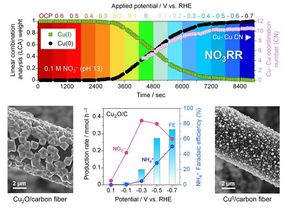With polyamide, Rhodia is preparing the car of tomorrow: lighter, safer and less noisy
Anzeigen
Paris, September 28, 2000 - Having been involved in the automobile sector from the very outset, Rhodia has always been committed to a dynamic research and innovation policy in partnership with the leading automobile manufacturers. One of Rhodia’s ambitions is to create the car of the future through extensive use of Polyamide.
Using polyamide in the design and manufacture of cars means the production of lighter, safer, quieter vehicles at reduced cost.
Polyamide: increasingly present in cars
As a driving force behind the world economy, and with the permanent challenges of costs, efficiency and performance, the automobile industry constantly looks for and applies new technologies in which polyamide plays a major role. Thanks to its numerous properties, polyamide is now increasingly used in the automobile manufacturing process: each vehicle contains no less than 10 kilograms, a figure which is often tripled for certain large cubic capacity cars.
Whether polyamide is used in the form of yarn for airbags and tyres or for engineering plastics for certain parts under the bonnet, transmission elements, cooling circuits, hand brakes, hub caps as well as the shells for wing mirrors, Rhodia makes a major contribution to the design and manufacture of quality vehicles through its specialised Enterprises.
Working in partnership
Thanks to Rhodia’s policy of regularly working in partnership with its customers, new polyamide applications constantly emerge in the automobile sector. The common objectives with all these applications are: greater safety and improved comfort for motorists at reduced cost.
For many years now, all the players in this industry have been developing new concepts, searching for increasingly efficient materials and working together to offer consumers a product with the best possible features in terms of safety and reliability.
Noise and vibration control
Through its research programme in partnership with PSA and the INSA engineering school in Lyon, Rhodia has been able to develop an experimental method for noise prediction.
As early as the prototype development phase, this testing procedure was set up to validate the acoustic behaviour of plastic parts within the engine environment, such as the rocker cover. Using this method before the manufacturing process, it is now possible to rapidly adapt the design of these parts to the increasingly precise and demanding requirements of automobile manufacturers regarding noise and vibrations.This ultimately results in improved comfort for the driver.
This joint approach meets the constant concern for improvement in the quality of cars, particularly by using lighter materials and integrating new functions through greater flexibility.
















































